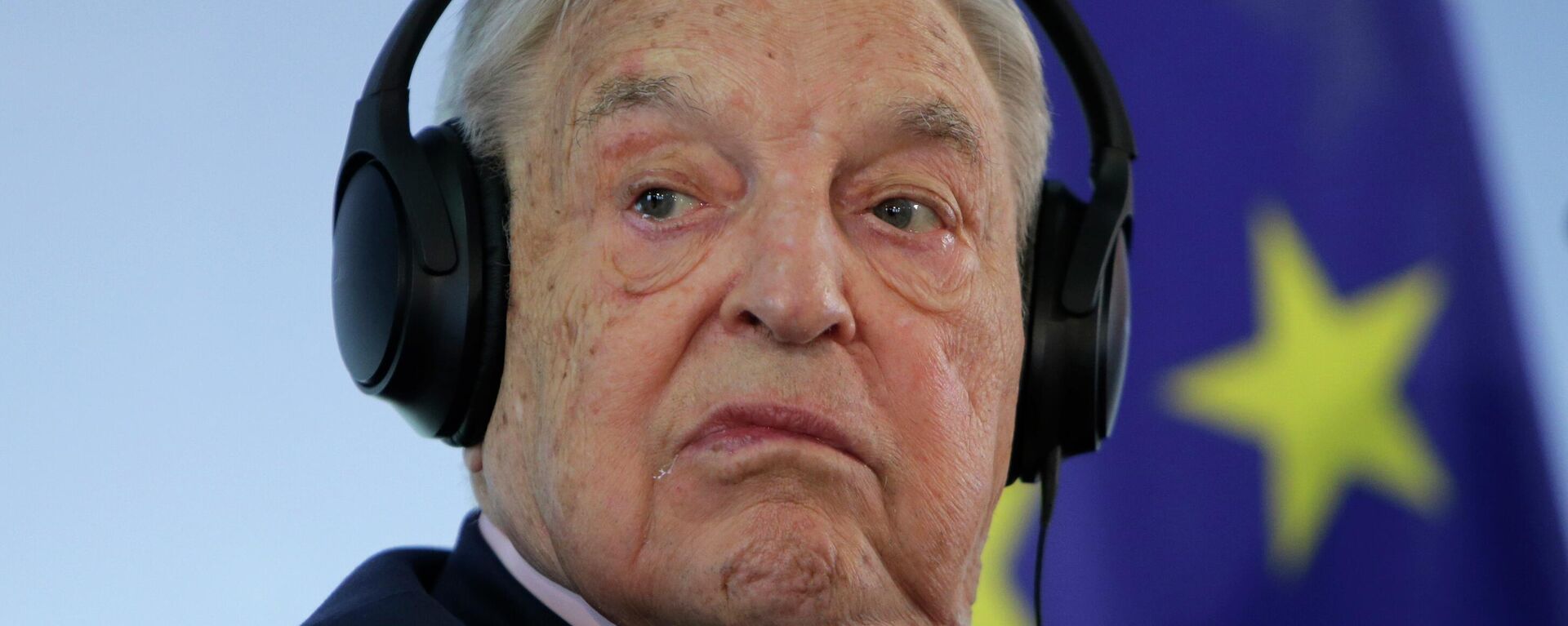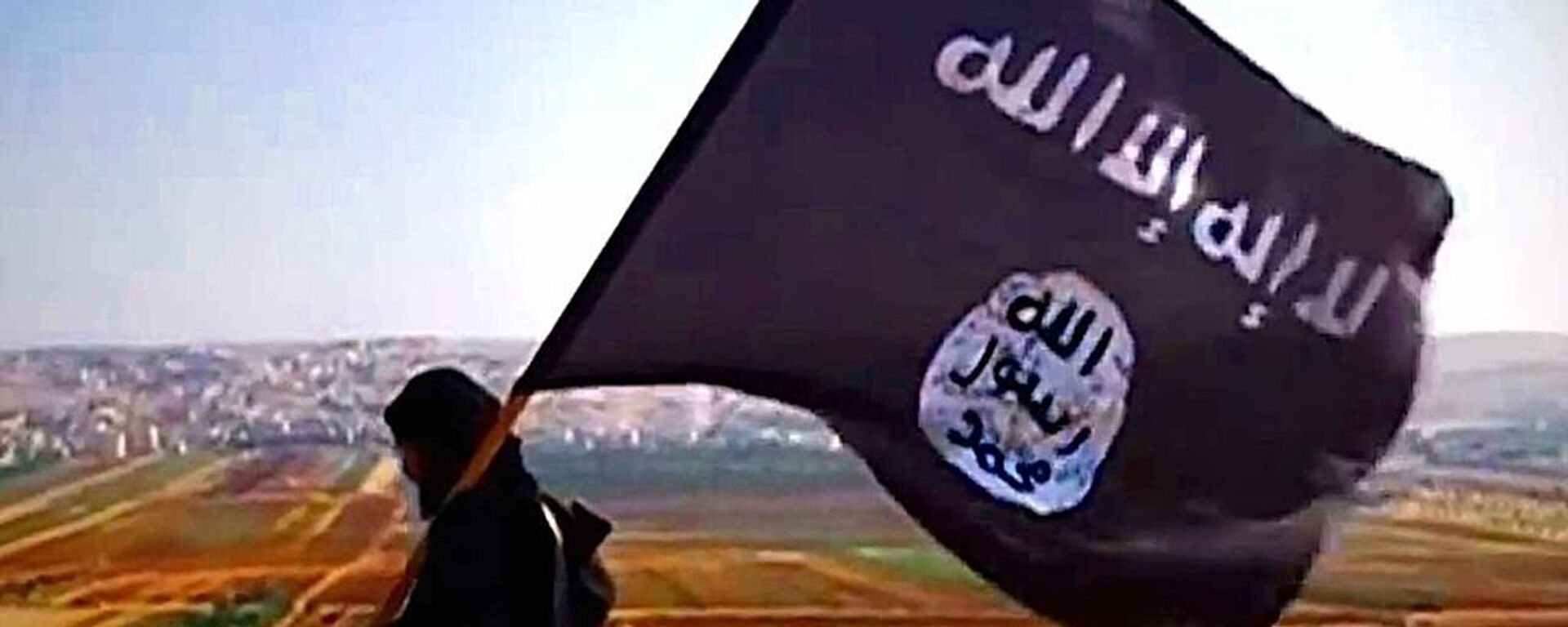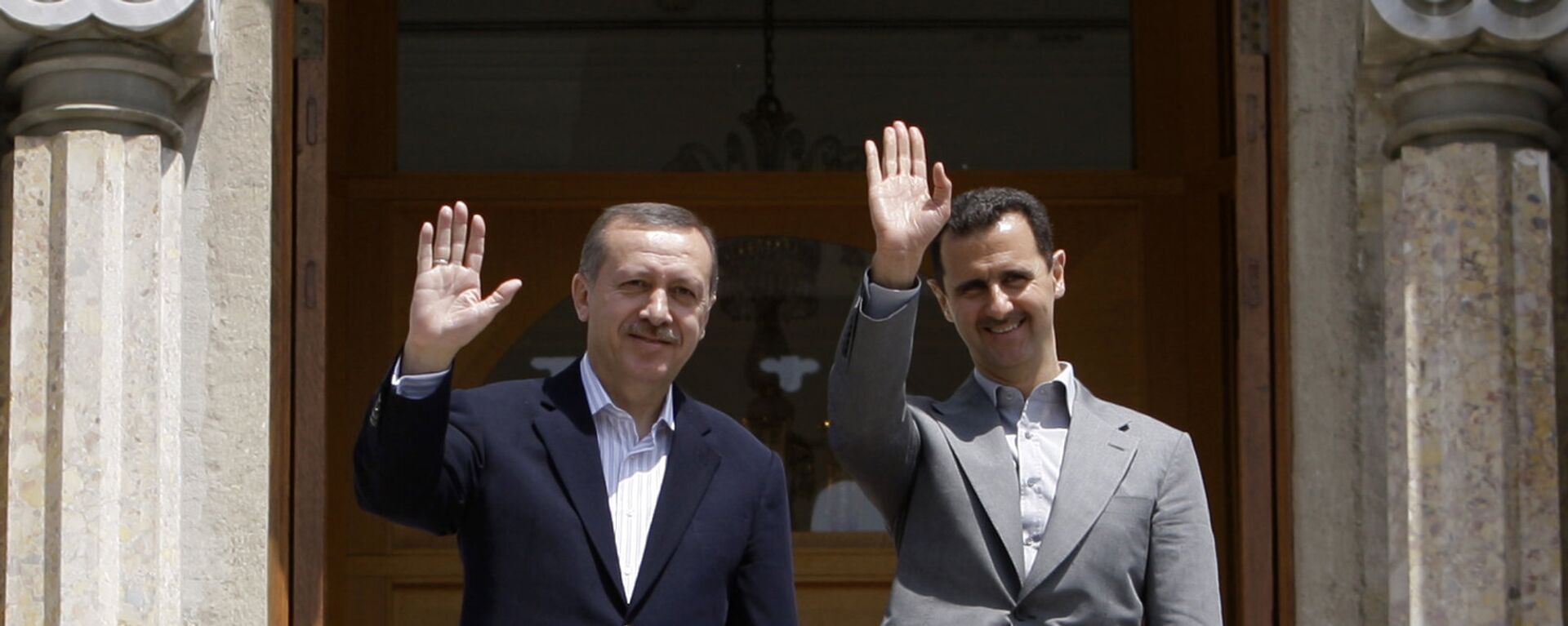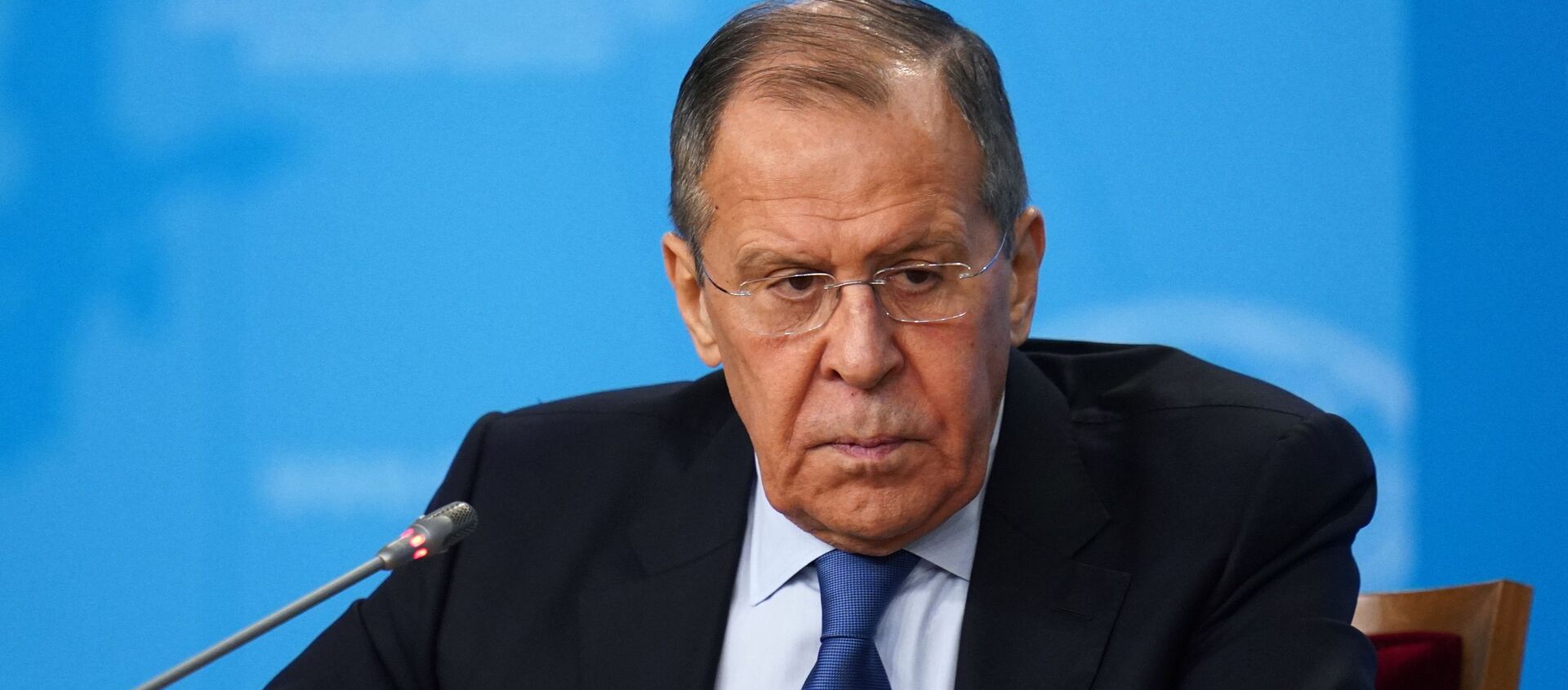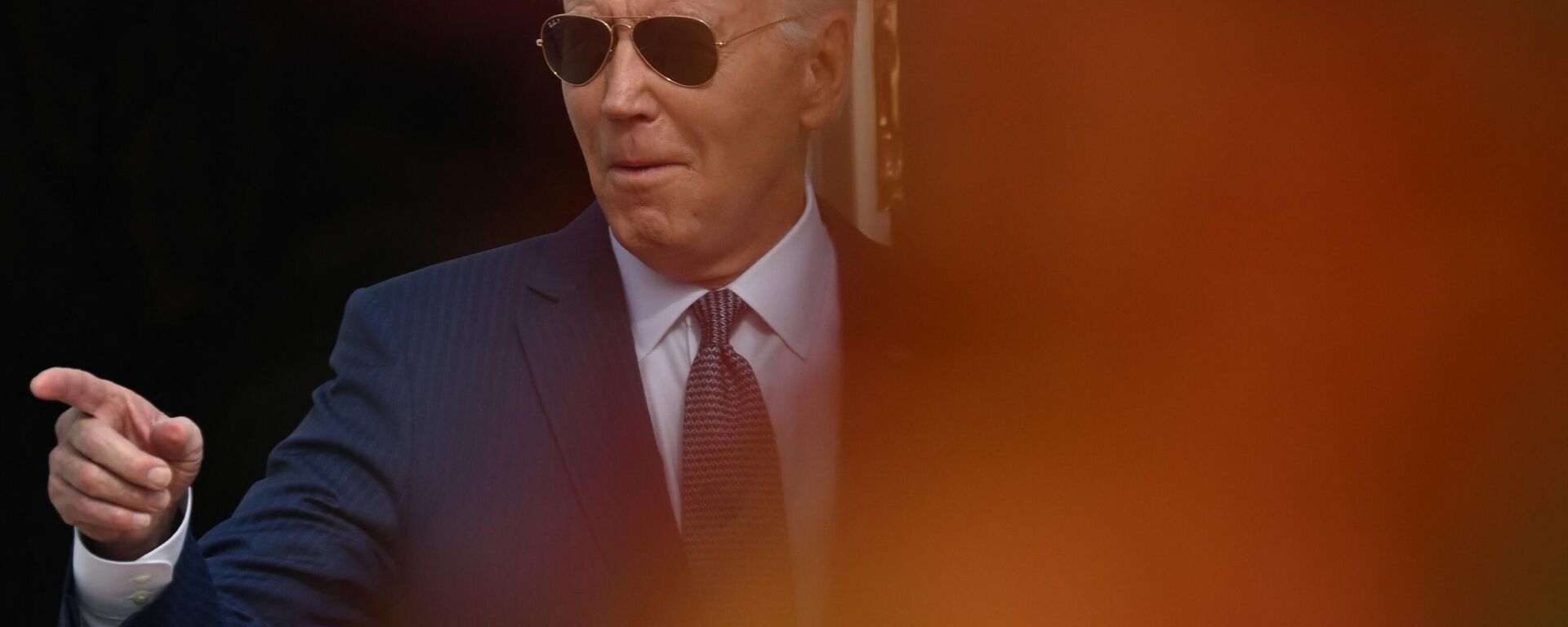Soros’ Shady Terror Ties: Why Billionaire Advised US to Ditch al-Qaeda Offshoot’s Terror Label
15:34 GMT 28.03.2024 (Updated: 16:07 GMT 28.03.2024)
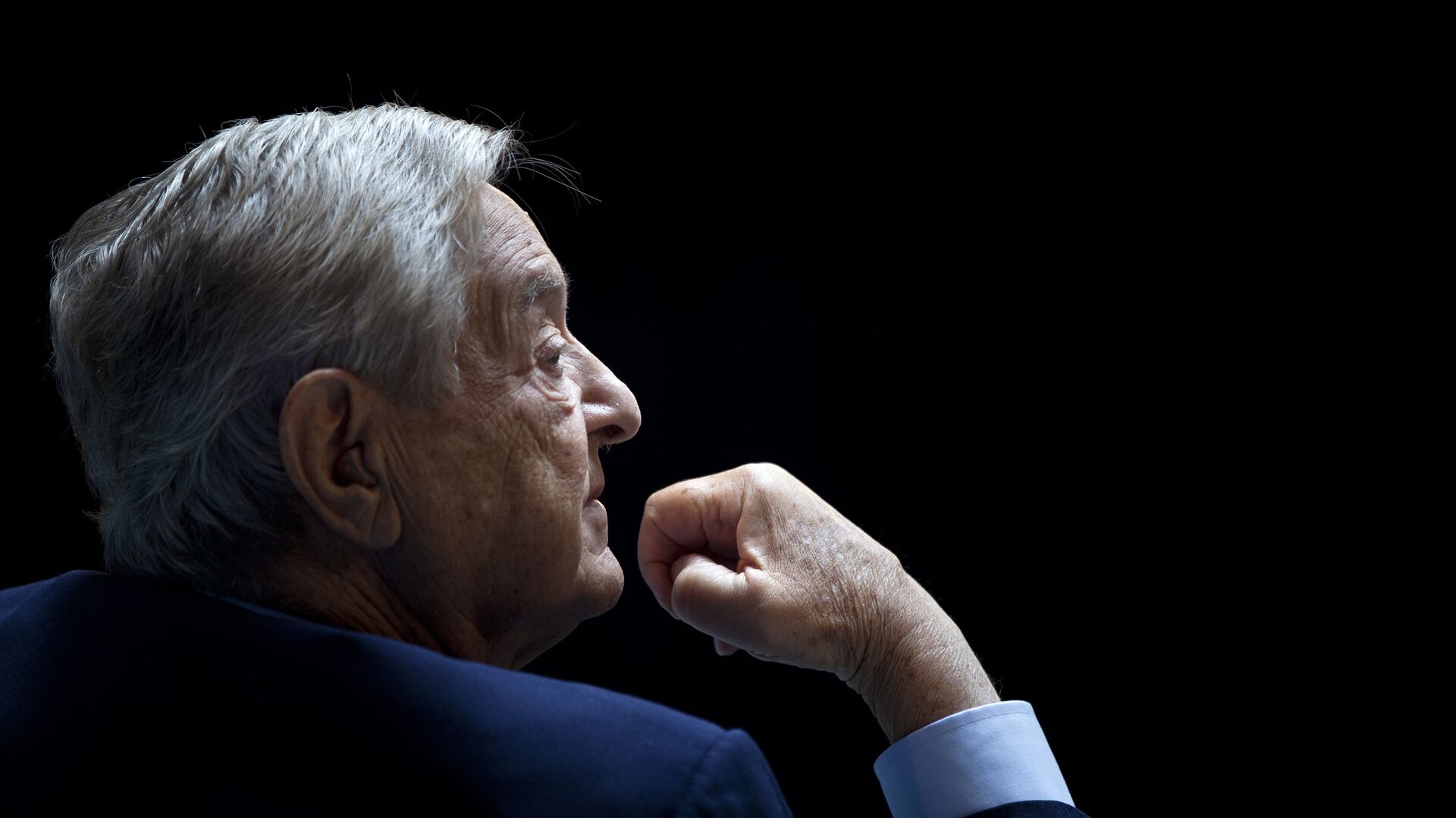
© AFP 2023 / Brendan Smialowski
Subscribe
Last week’s terror attack on a Moscow concert venue has opened a Pandora’s Box of allegations by Russian officials accusing Western intelligence agencies and governments of secretly cooperating with, coordinating and masterminding the activities of international terrorist groups. Occasionally, however, Western actors don't even bother to hide it.
Billionaire financier and civil society ‘philanthropist’ George Soros’ soft power empire needs no introduction, with his Open Society Foundations (OSF) grant making network active across the planet – including major global insecurity hotspots.
In Syria – the Middle Eastern country rocked by a decade plus-long CIA-sponsored dirty war, Soros has taken a deep and personal interest in the ouster of President Bashar Assad, with the OSF sponsoring an array of legal and humanitarian initiatives, and offering PR support for the White Helmets – the media-savvy civil defense organization characterized by independent journalists as ‘al-Qaeda* Civil Defense’ over its documented ties to jihadists.
So deep is Soros’ interest in the Syrian crisis that he has taken time out of his busy schedule to pen a series of articles in the Financial Times and Project Syndicate on the subject, accusing Russia of engaging in “war crimes” by striking terror strongholds, explaining why the 2016 operation to liberate Aleppo from jihadist control was actually a bad thing, and arguing that Moscow was “no ally against ISIS”* for the West (notwithstanding the outsized role Syria, Russia, Iran, Iraq, and Lebanon's Hezbollah militias have played in crushing ISIS and other jihadists operating across the Middle East over the past decade compared to the US 'anti-terror coalition').
‘Creative Ideas’
Soros’ obsession with the fate of Syria’s radicalized rebel groups can be better understood when exploring the type of policy advice given to US administrations by non-profits linked to the financier. In February 2021, the International Crisis Group – a Soros-funded Brussels-based think tank, released a strategic blueprint for the then incoming Biden administration’s Syria policy, recommending that Washington lift its formal terrorist designation against Hei’at Tahrir al-Sham (HTS)* - the Syrian al-Qaeda offshoot which dominates Idlib – the last stronghold of anti-Assad ‘rebels’ in the country, and scale back military operations against the group.
“The ‘terrorist’ label affixed to Idlib’s strongest rebel group undermines a crucial ceasefire and blocks potential paths to avert a military showdown. It also reflects a gap in Western policy. Creative ideas from Washington could help break the impasse and set a useful precedent,” the paper, entitled ‘In Syria’s Idlib, Washington’s Chance to Reimagine Counter-terrorism,’ recommended.
The think tank assured that HTS had actually “broken with transnational jihadist networks and now seeks entry into the realm of political engagement on Syria’s future,” and that the terrorist label on the group by the UN Security Council “presents a major obstacle.”
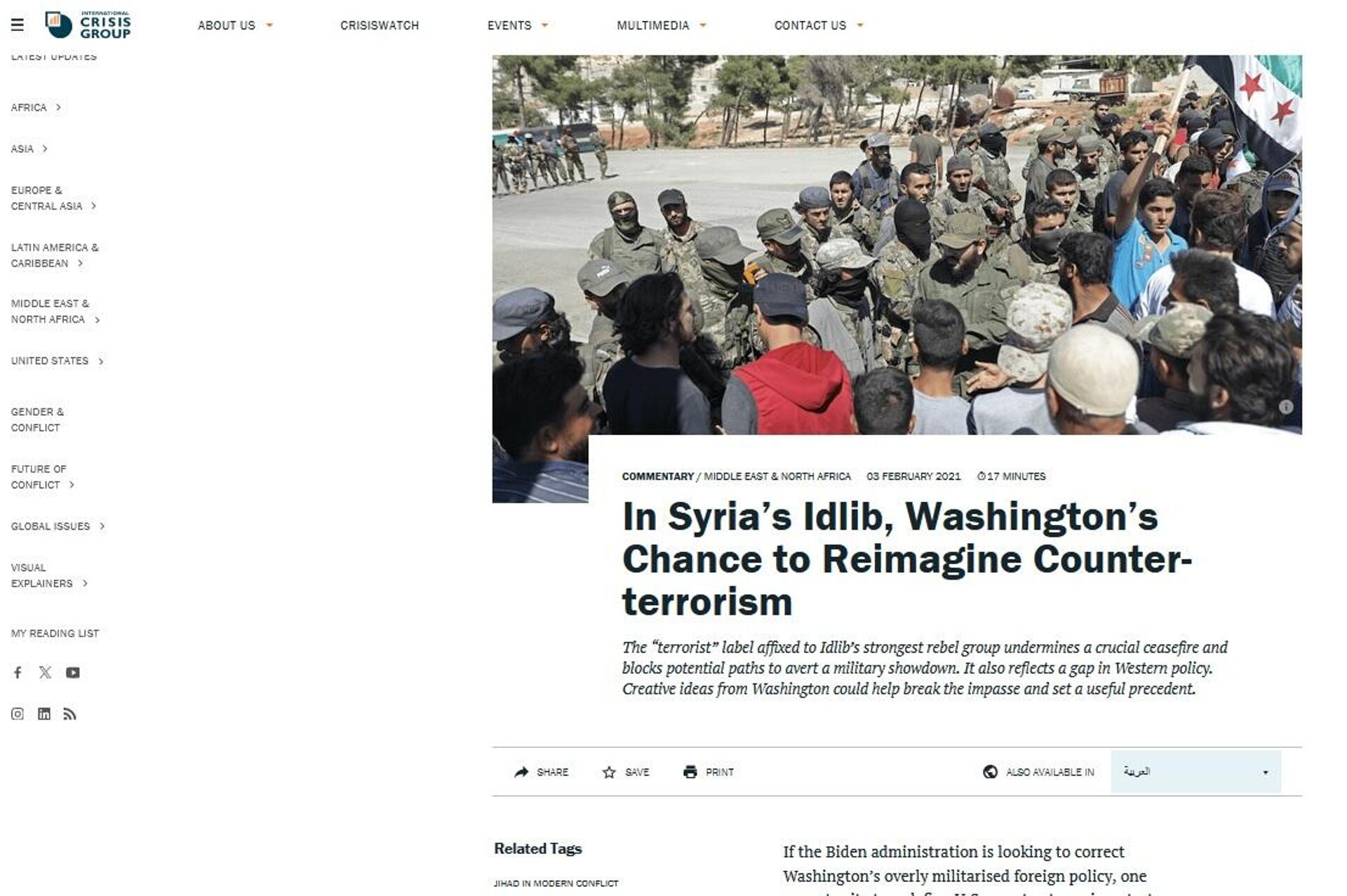
Screenshot of International Crisis Group article offering 'creative' recommendations for Washington on the transformation of a Syria-based al-Qaeda-linked terror group into a US partner.
© Sputnik / Screenshot
“The Biden administration should work with European allies and Turkiye to press HTS into further action that addresses key local and international concerns, and to define clear benchmarks which (if met) could enable HTS to shed its ‘terrorist’ label,” the International Crisis Group suggested. Further still, it stressed, “such an approach would have wider value: it could lay out what a conditional roadmap looks like for other groups on today’s battlefields that have been designated ‘terrorists’ but show willingness to forego their pursuit of transnational agendas and attacks on civilians, among other criteria.”
The purpose of lifting the terror label against a group tied to fanatics held responsible for the worst-ever terror attack on US soil becomes clear further down, with the ICG expressing concern over US drone strikes on Idlib-based terror leaders, and what it said was the “short-sighted” assumption in Washington that the rebel region’s return to Syria “might be desirable from a counter-terrorism perspective.”
Instead, the Soros think tank effectively recommended that Syria remain perpetually divided, with HTS to be offered “carrots and sticks” to meet Western standards, such as expanding “space for independent and Western-backed civil society organizations to operate,” and demonstrating a “clear commitment to political and religious pluralism.” The goal? To prevent the Assad government from restoring the country's territorial integrity.
The think tank made similarly bold recommendations in 2023, urging Turkiye and Western powers to "strengthen the 2020 ceasefire” between Idlib militants and Damascus to prevent Syria from restoring control over its internationally-recognized territories.
The same year, coincidentally, leading HTC militant Abu Maria al-Qahtani urged al-Qaeda to formally disband and create a “united front” for operations against Iran. On top of that, Idlib became a strategic conduit for the recruitment of jihadist fighters flowing to Ukraine to fight Russia, among them the Ajnad al-Kavkaz* group, known to have engaged Russian forces in the Battle of Bakhmut.
President Assad’s successful breakout from regional diplomatic isolation in May 2023 and Syria’s return to the Arab League has undoubtedly pressured Washington to intensify efforts to legitimize the HTS – with support for the terrorist wildcard not only helping to assure the continued partition of Syria, but using the region to prevent Syrian-Turkish normalization, and thus fueling Ankara’s drift from the Western orbit.
Birds of a Feather
Whether thanks to Soros lobbying or due to internal considerations, the Washington permanent state apparatus is known to have adopted many of the International Crisis Group’s recommendations.
In an explosive March 2021 interview with PBS, James Jeffrey, the Trump-era Syria point man who boasted openly about deceiving the president on the size of the US military footprint in Syria, and blocking orders to withdraw from the country, praised the HTS as an organization the US could cooperate with.
“Certainly the behavior of Hayat Tahrir al-Sham since I’ve been observing them in 2018 is they don’t go after civilians,” Jeffrey said, recalling his personal efforts to lobby a waiver on the resumption of the delivery of humanitarian aid in HTC-controlled areas by USAID the same year.
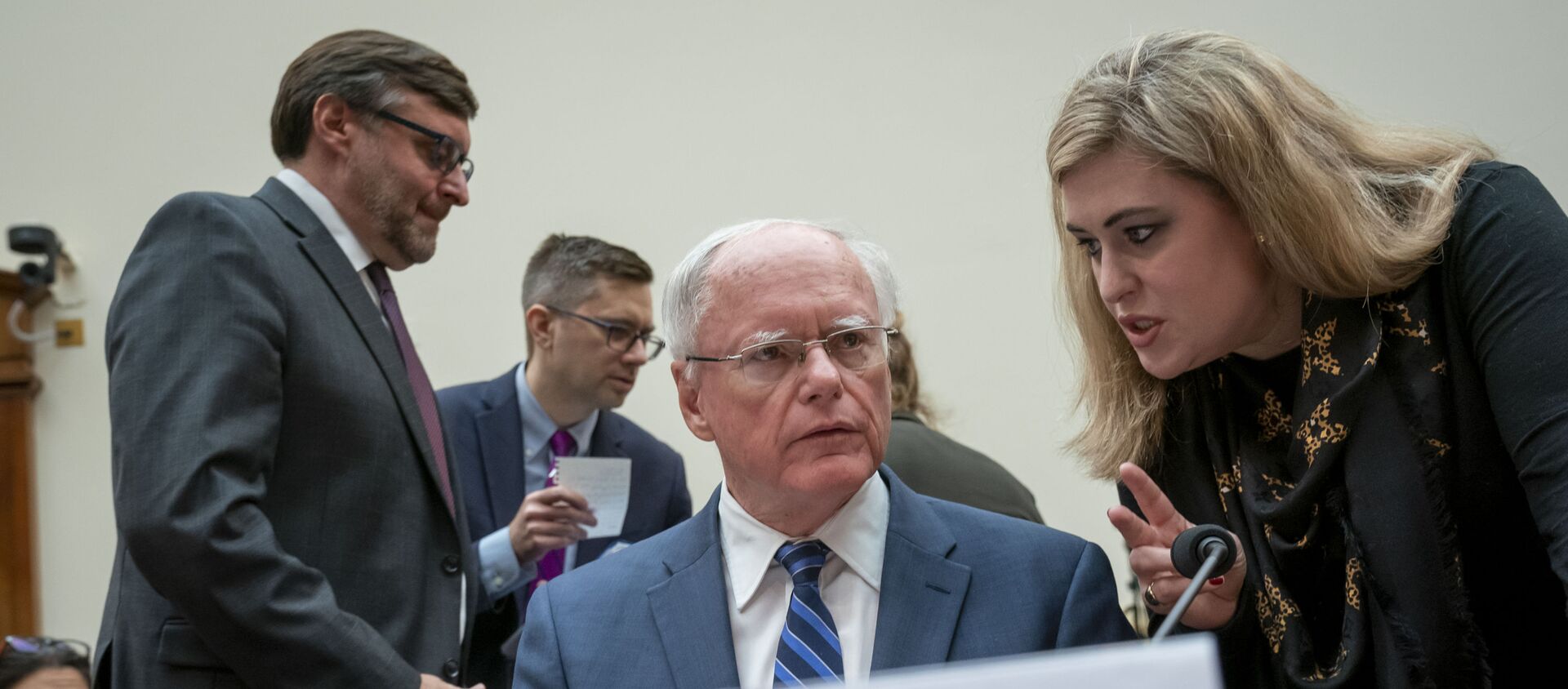
13 November 2020, 18:42 GMT
“Now for the second time, not by supporting the armed opposition but by supporting indirectly the armed opposition – supporting the Israelis, supporting the Turks, supporting the SDF [Syrian Democratic Forces], keeping our troops on – we were re-engaging militarily, as well as diplomatic, and through sanctions and other economic tools in Syria, to try to stop a Russian-Assad-Iranian victory. And HTS picked up on that,” Jeffrey said, recalling messages from the terror group to US interlocutors saying “We want to be your friend. We’re not terrorists. We’re just fighting Assad.”
“I had to be very careful that I was not seen as someone who was advocating support for HTS, which was why I was horrified when [Russian Foreign Minister Sergei] Lavrov fingered me, hoping that it wouldn’t be picked up by anybody else, because there was a lot of controversy about this Syria policy,” Jeffrey admitted.
Pro-Terror Public-Private Partnership
Syria and its Russian and Iranian anti-terror allies have for years accused the United States of covertly aiding the jihadists in the Syrian dirty war, training ‘former’ Islamist militants at the al-Tanf garrison and the US-occupied northeastern territories, evacuating militant leaders aboard helicopters, and openly mingling with the jihadists. In 2018, now late Revolutionary Guards Quds Force commander Qasem Soleimani urged Iran’s diplomats at the UN to publicly “slap” Western powers “in the face” with evidence of US collusion with Daesh in Syria and Iraq. Two years later, the anti-terror commander was killed in a US airstrike in Baghdad.
Soros’ involvement in shaping US policy in Syria, outlined above in some detail for the first time, sheds new light on the role American billionaires’ pet think tanks can play to influence efforts to patch up the faltering Western liberal hegemonic order.
* Terrorist groups outlawed in Russia and many other countries.

